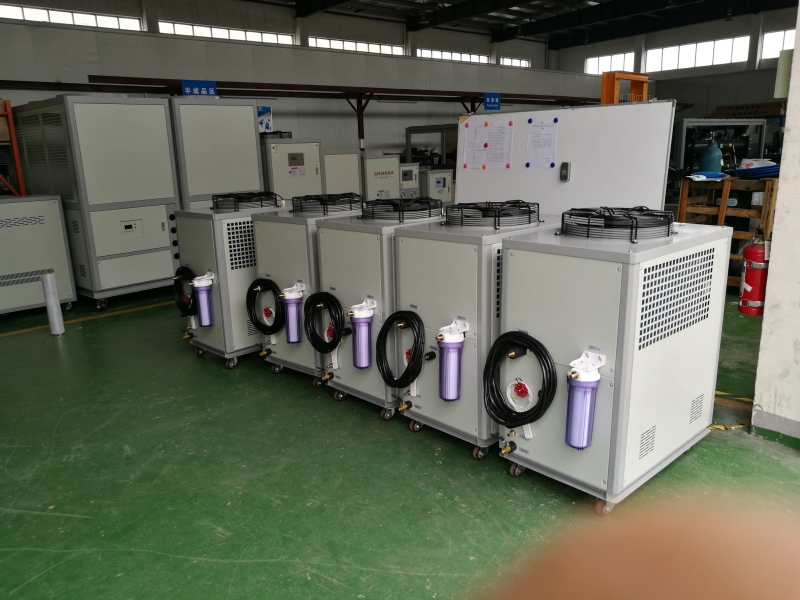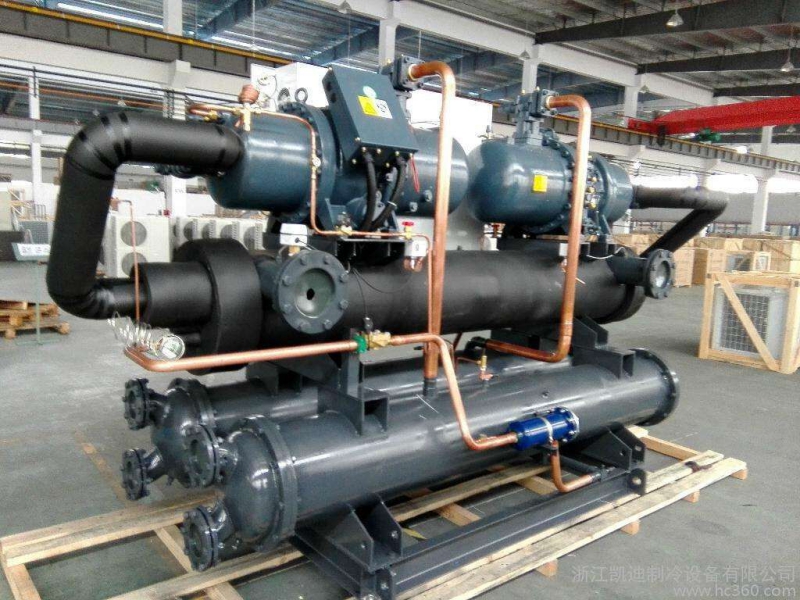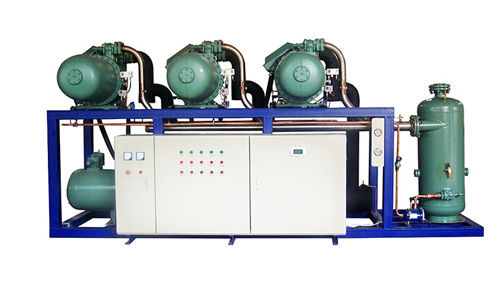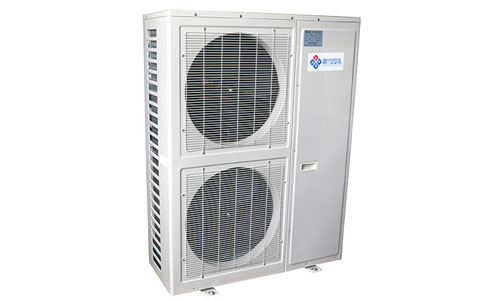Introduction of chiller
OK, so isn’t it quite obvious? An air-cooled chiller is cooled by air while a water-cooled chiller is cooled by water.
Well, it’s actually not that simple and of course, there is more to it!!
That is exactly what this article is all about, where we explore the nuances, the key differences between an air-cooled chiller and a water-cooled chiller.
Reading through, you will be able to appreciate the subtleties that lie between them, the reasons for which you might prefer one over the other, and more.

Heat Rejection System
The first thing you need to understand in this context is that both are industrial chiller units with varying heat rejection systems. Additionally, in both cases, the condenser plays the most important role in terms of cooling the refrigerant; at the same time, the way in which it does so proves to be the key differentiator between them.
Cost
A lot of our readers are very keen to know about cost-related differences between the two, perhaps for rather obvious reasons since that will determine the choice they make.
In this regard, first up we can confirm that when it comes to initial installation costs incurred upfront, air-cooled screw chillers prove to be significantly more cost-effective than water-cooled ones.
At the same time, this is not the only cost you need to be looking at; remember that when it comes to industrial coolers like these, overall operational costs prove to be the real deal-breaker. After all, the initial savings in case of air-cooled chillers (that do not require condenser water pumps, cooling towers, as well as related HVAC parts) can easily be negated by higher operational costs in the long run.
Size
Size is a key differentiator while gauging the difference between an air-cooled and water-cooled chillers. Typically, you will find smaller installations to be air-cooled as there are high costs associated with the treatment of water as well as overall maintenance which are unlikely to be negated by relatively lower costs of day-to-day operations. As a corollary, you will invariably find larger installations to be water chiller systems, especially since maintenance in their case is a whole lot easier.
Sound
You may not have thought of this, but the sound (more specifically the noise!) emanated by these two types of industrial coolers does tend to differ! Usually, you will find water-cooled chillers making less noise as compared to air-cooled ones.
This factor gains prominence while determining the cooling option for places like office spaces where a peaceful, serene environment is strongly preferred.
Moreover, in addition to less noise in case of a water chiller machine, their cooling capabilities in relation to the area to be cooled tends to be better than air-cooled chillers; thus giving them an added edge.

Durability
Another vital differentiator – and indeed a major factor while choosing practically any item of this nature is the durability factor, viz. how long-lasting are the machines in question? In this case, we find water-cooled chillers to have notably longer lives in comparison to air-cooled chillers. Water-cooled chillers also happen to be more efficient with greater capacities, raising the preference quotient for them incrementally.
Efficiency
While assessing the quality of a chilled water system machine, efficiency is a major factor. In this case, it would refer to the ease with which cooling is done while expending minimal resources such as electricity, additional components, and so on.
Herein, at the outset, we find water cooler chillers to showcase greater efficiency, especially when we consider the cost of compressors. However, as we dig deep, we find that the overall efficiency of air-cooled chillers proves to be superior when there are some particular add-ons brought into the picture, such as centrifugal compressors.
In essence, a lot of the commercial water chiller differentiators discussed on this page will always have to be looked at contextually.
Ease of Operation
Being industrial coolers, these are clearly coolers which cannot be operated (or fixed!) by lay individuals. They require professionals, typically water chiller manufacturers well versed with items of this nature. In this regard, air-cooled chillers clearly come across as significantly easier to operate in comparison to water-cooled chillers. The fact that the latter require cooling towers (which air-cooled chillers do not) only adds to the overall ease with which they can be operated.
Conclusion
Clearly, there is an entire multitude of differentiating factors between air-cooled chillers and water-cooled chillers.
What you may have gauged from this post is that there is really no strict “right” or “wrong”.
Instead, as with many things in life, it is really contextual, in relation to the place or facility where you are installing these chillers, the kind of budget you have, the size and type of place to be cooled, and so on.
Therefore, do keep all these different factors in mind when ultimately making a choice of your ideal cooled chiller.








